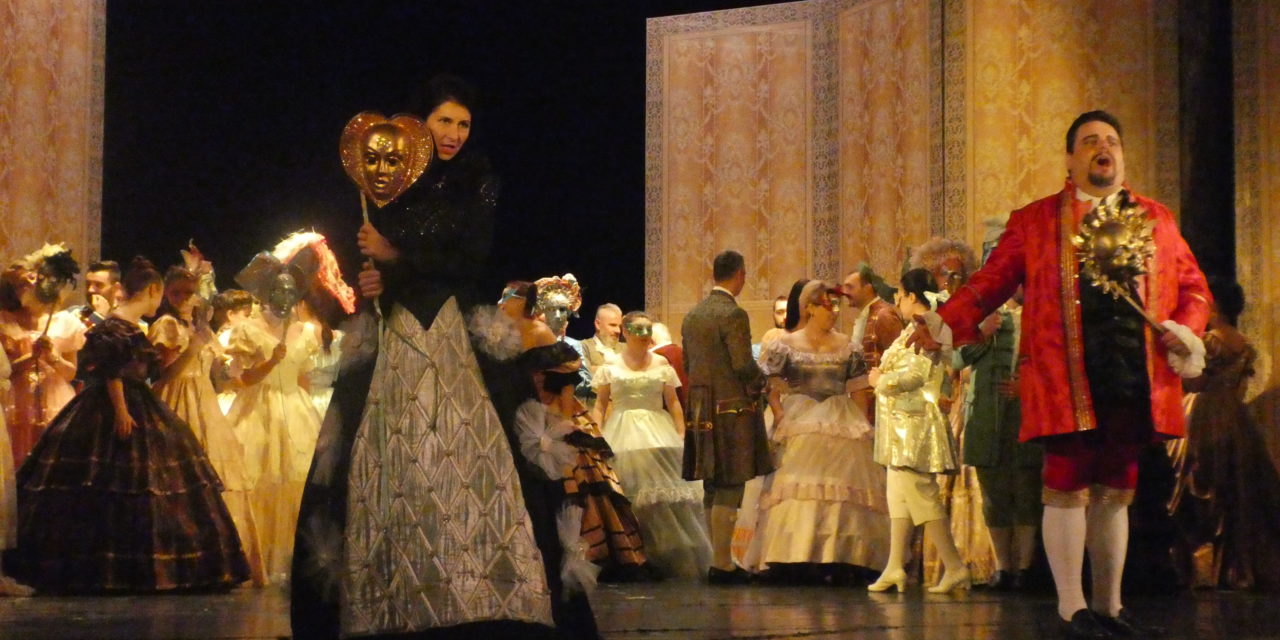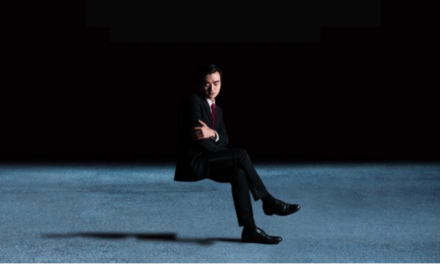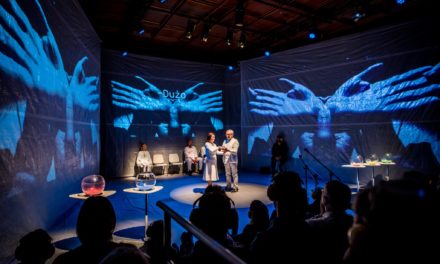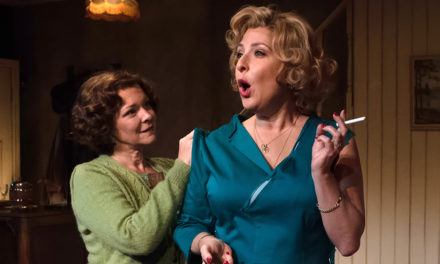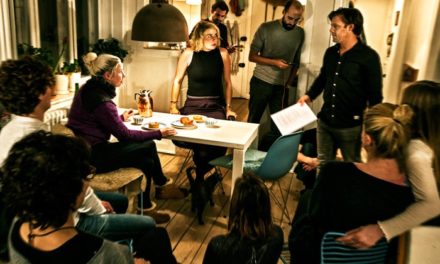Year after year, the Galati Theatre Festival commands a prestigious position for opera theatre in Romania. It has a good reputation in Italy also, thanks to the work of Paolo Bosisio–an important professor of theatre history (in the late 1980s he founded the chair in this discipline at the University of Milan) and an opera director–and one of the most requested artists in Eastern Europe. On October 24, 2016, he received an honorary degree in Arts at the University “Dunarea de Jos” in Galati: this Romanian town has become a sort of “theatrical home” for him, and the sincere appreciation of local audiences is one of the most precious gifts in his long artistic experience.
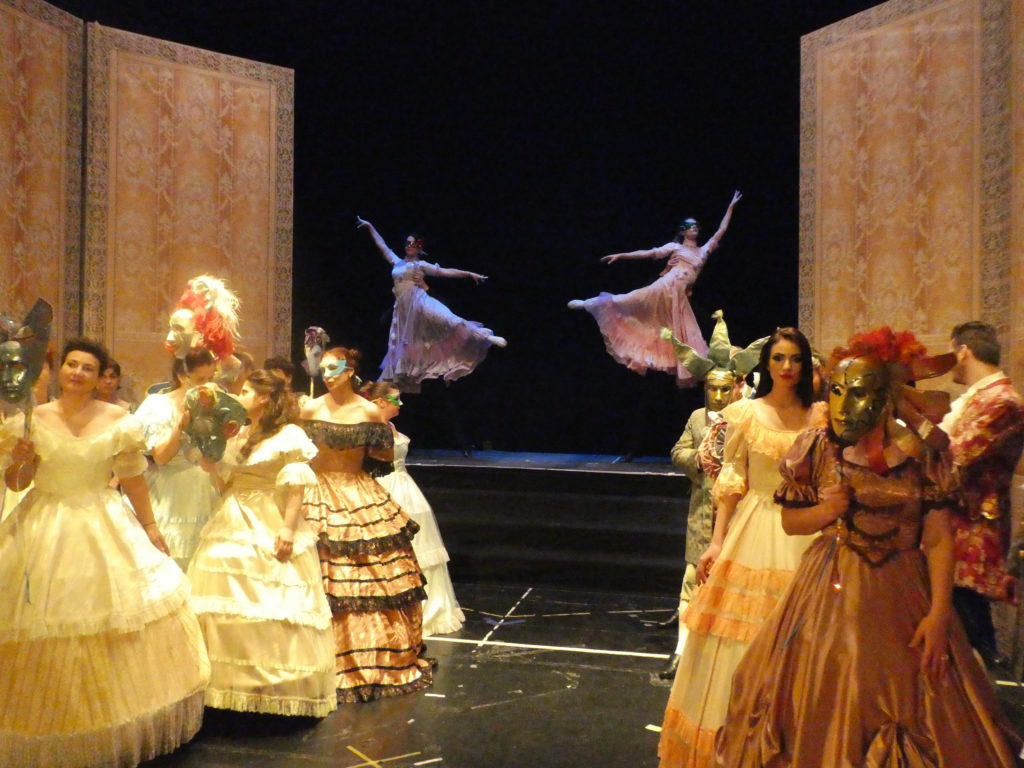
A Masked Ball. Staging at the Galati Theatre Festival (2017), opera director Paolo Bosisio. Press Photo.
In the 2017 edition of the festival, as a foreign guest, Paolo Bosisio won over audiences with the debut–on November 12–of A Masked Ball (Un Ballo in Maschera), by Giuseppe Verdi (1813–1901), and with an Italian libretto by Antonio Somma (1809–1864). In this staging, in three acts, the young conductor Cristian Sandu revealed his talent with the orchestra of the Teatrul Muzical Nae Leonard: in fact, the title was absent from the theatre’s repertoire for about fifteen years, and this was the first performance for many of the involved musicians.
In his deep, emotional use of light, Paolo Bosisio underlined the different feelings of the characters, revealing the plot’s many psychological levels: each situation had a specific luminous tone, and a specific meaning, in a real synergy with the singers and the musicians. His work as a light designer perfectly complements that of the set designer, Domenico Franchi: in their frequent collaborations, they achieve an equilibrium of essentiality and functionality–in their respect for the intentions of the author and the value of the tradition.
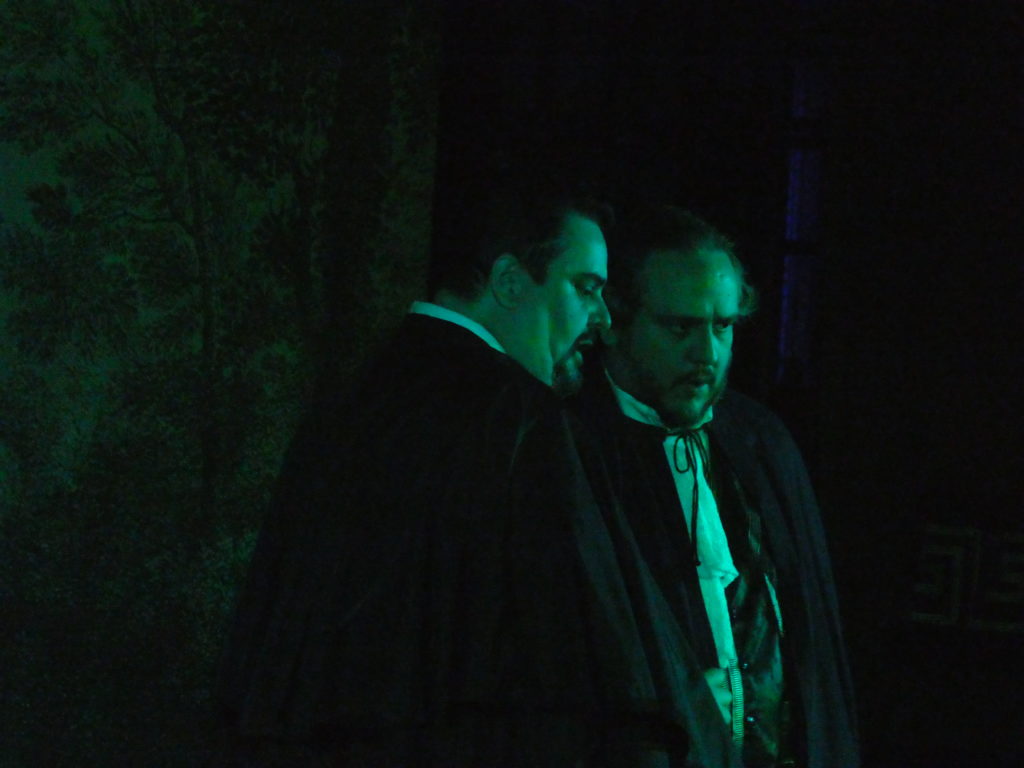
A Masked Ball. Staging at the Galati Theatre Festival (2017), opera director Paolo Bosisio. Press Photo.
The dramatic interpretation by the singing company increased the impact of the staging: the tenor Cristian Balasescu has long experience in the role of Riccardo, while the soprano Cristina Radu was in her first performance in the role of Amelia. For the Italian baritone Roberto Bortoluzzi, this was his first performance in the role of Renato. Dan Popescu and Dominic Cristea offered many high-quality cameos, in the antagonistic roles of Tom and Samuel. The soprano Adelina Diaconu offered an innovative performance in the role of Oscar, while Andrada Rosu offered a traditional interpretation in the role of Ulrica.
This was a notable production, one that opens a relevant chapter in the fortunes of Verdi in Eastern Europe, in the new millennium.
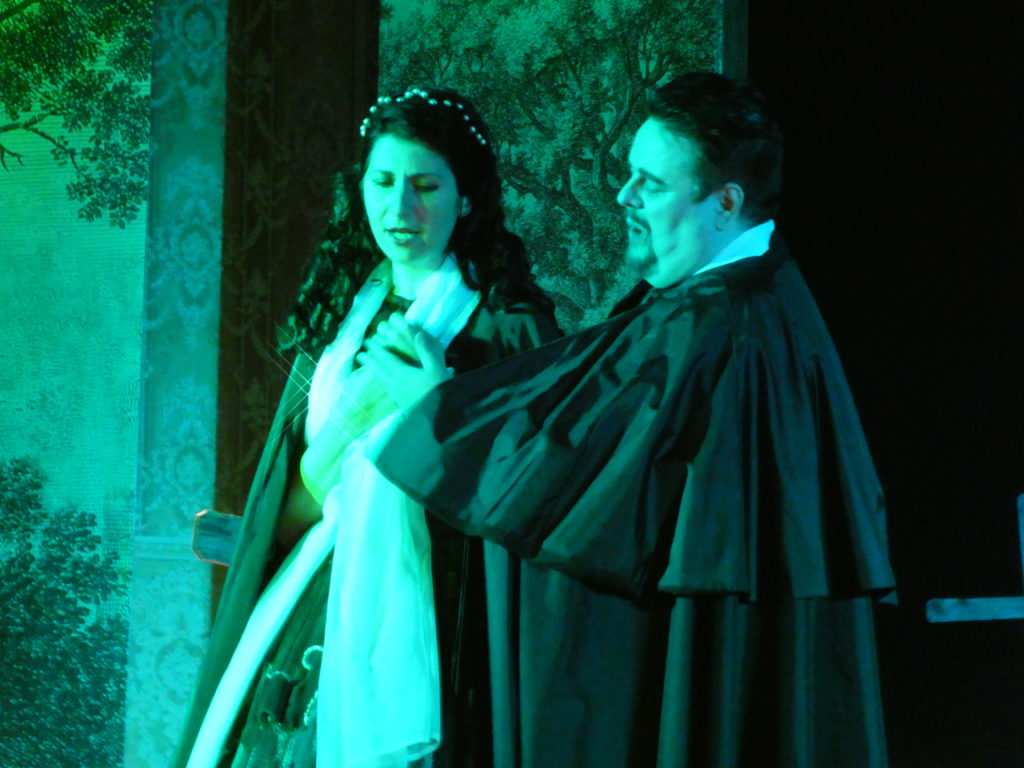
A Masked Ball. Staging at the Galati Theatre Festival (2017), opera director Paolo Bosisio. Press Photo.
This post was written by the author in their personal capacity.The opinions expressed in this article are the author’s own and do not reflect the view of The Theatre Times, their staff or collaborators.
This post was written by Maria Pia Pagani.
The views expressed here belong to the author and do not necessarily reflect our views and opinions.

